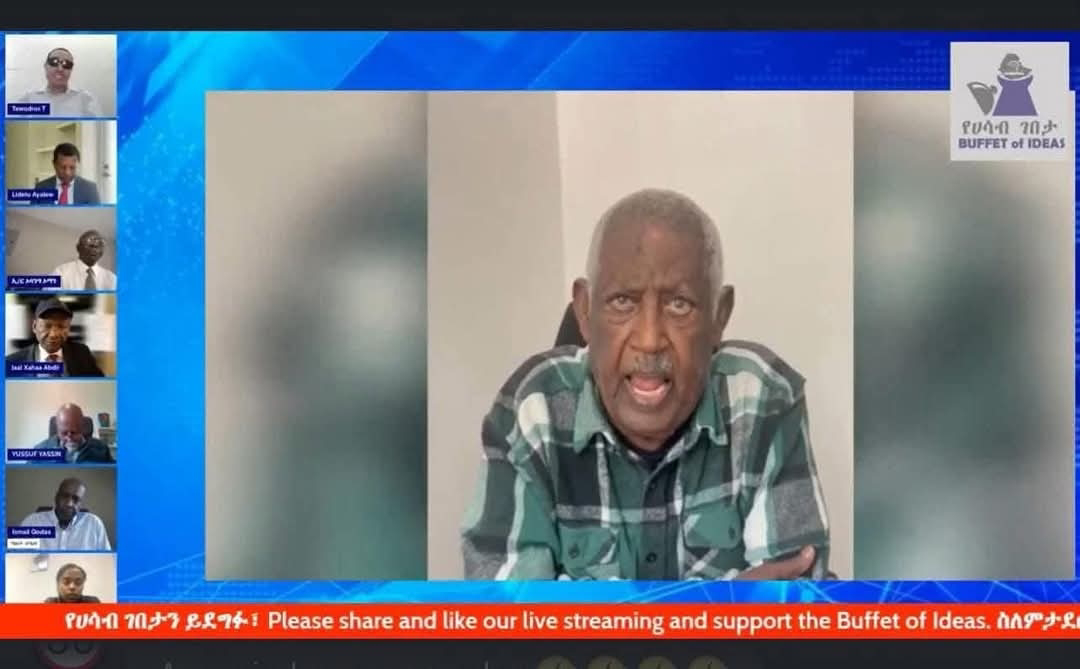Ethiopia’s Political Discourse and the Digital Theatre of Desperation
By:Habtamu Abino
Today’s online discussion hosted by Reyot Media showed the growing anxiety among Ethiopia’s political aspirants and sidelined elites. The rally—more a digital spectacle than a constructive political dialogue—featured prominent figures like Jawar Mohammed, Ledetu Ayalew, and their cohort. What emerged was not a blueprint for democratic reform, but a vivid portrait of political desperation thinly veiled in rhetoric about "transitional government" and "saving Ethiopia."
A Call for Power, Not Reform
Jawar and his allies framed their arguments around the need for a transitional government, claiming it would ensure a peaceful path forward. However, their motivations appear less about democracy and more about reclaiming lost political relevance. The rally echoed a consistent undertone: a desire to short-circuit the democratic process and gain access to power outside elections.
One must ask: Why would Prime Minister Abiy Ahmed agree to a transitional arrangement when general elections are merely a year away? To whom would such a decision be accountable? Certainly not to the Ethiopian people who have consistently preferred constitutional continuity over elite-driven transitions despite enduring political hardship and security challenges.
A transitional government is not a magic cure for Ethiopia’s woes—it is a political reset button often abused by those who have lost public favour or failed to organise electorally.
Social Media: A Megaphone for Noise, Not Necessarily Truth
Placing politically charged discussions on platforms like Reyot Media illustrates how digital spaces have become battlegrounds for influence. While the internet provides a valuable forum for dialogue, it has also been weaponised by actors who leverage public frustration for personal gain.
No democratic government should surrender its constitutional legitimacy to social media campaigns or orchestrated online outcries. Governance, after all, is not built on hashtags or reactionary rhetoric but through credible institutions, elections, and the rule of law.
Political Opportunism Masquerading as Activism
Jawar Mohammed, once known for mobilising youth movements, now increasingly appears to be recycling old tactics—this time in the digital domain. His repeated calls for public unrest under the guise of political pressure bear alarming similarities to power-grabbing strategies historically employed by warlords and insurgent groups.
Ledetu Ayalew, another speaker in today’s online rally, played the familiar role of the self-declared voice of reason. Yet, his political relevance has dwindled since the early 2000s. What unites figures like Ledetu, Jawar, and others is not ideology or vision, but a shared frustration at being locked out of Ethiopia’s current political trajectory.
Abiy’s Calculated Silence
Prime Minister Abiy Ahmed has remained mostly silent on such calls, and rightly so. History teaches that governments that bend to political blackmail, be it through armed struggle or online disruption, only sow further instability. A transition forced under pressure and noise, rather than constitutional order, will delegitimise the very concept of democracy.
While critics accuse Abiy of consolidating power, the demand for a transitional government led by those without electoral mandates or clear popular support would be a step backwards. Ethiopia needs reform through democratic mechanisms, not recycled elites clamouring for relevance.
The Path Forward: Democratic Discipline
Ethiopia faces genuine challenges: ethnic tension, economic uncertainty, and political fragmentation. These issues require thoughtful engagement, not theatrical online campaigns. The country must stay the course toward a free and fair election in 2026, improve electoral institutions, and encourage civic education that discourages digital demagoguery.
In the meantime, calls for a transitional government—especially when made by actors with questionable records or divisive agendas—should be viewed for what they are: distractions from the democratic process.
Conclusion
Today’s online political rally was not a sign of strength but weakness. It revealed how deeply certain actors are disconnected from Ethiopia's democratic pulse. While the path ahead is uncertain, surrendering to political opportunism disguised as a digital revolution would only deepen the nation’s instability.
The future lies not in hasty transitions but in mature political processes grounded in law, elections, and national consensus—not digital noise.





You nailed it Habtish. I share your ideas.
ReplyDelete